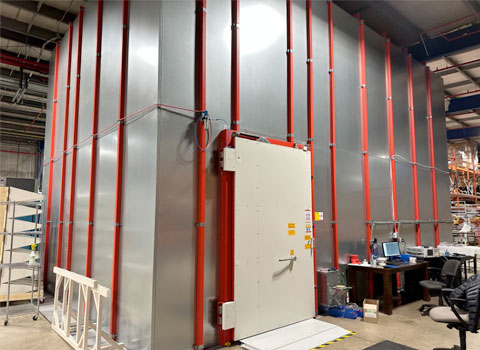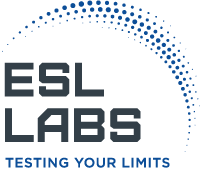We have the expertise on environmental testing procedures to provide test consultations, and to help you interpret test requirements, or tailor a unique test program to your specific needs.
ESL Labs maintains a number of data acquisition systems and sensors to track test parameters and/or the operation of the item under test. These systems are able to accommodate custom sensors. We have power supplies to supply virtually any requirements for operating the item under test. All test instrumentation is calibrated against standards traceable to National Standards and Military Spec Standards, according to in-house procedures conforming to MIL-STD-45662.
To support our testing we also provide a number of sensors ranging from strain gauges, accelerometers, thermocouples and humidity sensors to anemometers, thermistors and pressure transducers.
FEATURED: Dynamic Shock and Vibration Testing at ESL Labs
At ESL Labs, we provide advanced shock and vibration testing services to ensure your equipment performs reliably in the real world – no matter how extreme the conditions. Our dynamic testing capabilities are designed to simulate a wide range of operational and transportation environments, from commercial trucking and warehouse handling to military tracked vehicles and satellite deployment.

Our facility supports a full suite of dynamic testing methods and procedures, including:
- Vibration Testing: Sine, Random, Mixed Mode, Loose Cargo, and Transport Profiles
- Classical Shock Testing: Half-Sine, Sawtooth, Trapezoidal Shock Response Spectrum (SRS)
- High-Impact Testing: Including Navy-grade shock simulation to MIL-DTL-901E standards
Whether you're in aerospace, automotive, industrial equipment, packaging logistics, or defense, our test protocols help verify the durability, safety, and resilience of your products under stress. From validating electronics and mechanical assemblies to supporting product certifications, we help you reduce risk and prove performance before deployment.
Ready to test with confidence? ESL Labs delivers precise, standards-based shock and vibration testing tailored to your needs.
What is Environmental Testing?
Environmental testing evaluates products and materials by exposing them to various climatic conditions and mechanical stressors to ensure performance, durability, and safety. Industries such as aerospace, defense, electronics, and pharmaceuticals use environmental testing to identify potential weaknesses in design or function. Common tests include thermal cycling, corrosion, steady-state, and thermal shock testing. These tests help businesses meet industry regulations (e.g., ASTM, ISO) and avoid costly failures. By simulating real-world conditions, environmental testing supports product innovation and helps companies maintain their competitive edge while adhering to regulatory standards.

Environmental Test Chambers
Test chambers allow manufacturers to assess product durability, performance, and reliability under controlled environments, such as extreme temperatures, humidity, vibration, and corrosive conditions. This ensures products can withstand harsh real-world conditions in industries such as aerospace, defense, automotive, and electronics.
By identifying potential weaknesses early, companies can make design improvements, prevent costly recalls, and meet industry standards such as ASTM, ISO, and MIL-STD. Test chambers also help businesses comply with regulatory requirements, ensuring safety and market readiness.
At ESL Labs, we operate environmental test chambers in a wide variety of sizes and configurations to meet your climatic testing requirements.
Test Tailoring
ESL Labs can provide for ‘Test Tailoring’ which involves researching certifications, standards and interpretation of those standards as they apply to your product. We can design, manufacture, and adapt tailored test procedures unique to your product. If needed, we are also able to design, manufacture, and adapt test fixtures to ensure your product can be appropriately tested.


Thermal Shock Testing
ESL Labs’ thermal shock testing assesses product durability by rapidly shifting items between extreme temperatures, simulating conditions from the Tropics to the Arctic. Our chambers accommodate a range of sizes and can operate from -65C to 150C. This testing ensures products can endure sudden temperature changes, meeting standards like MIL-STD-810G.
Salt Fog and Accelerated Weathering Testing
ESL Labs offers comprehensive corrosion testing to evaluate how materials withstand harsh conditions. Out testing services include salt fog, immersion, fluid susceptibility, and accelerated weathering tests following ASTM and MIL-STD standards. These tests identify corrosion risks and ensure products meet their expected lifespan. With various chamber configurations, at ESL Labs, we can perform both rapid and long-term corrosion assessments on coatings, paints, and full products.
Vibration and Shock Testing
ESL Labs offers advanced shock and vibration testing to simulate real-world transportation and operational stresses, from trucking vibrations to satellite deployment shocks. We use electrodynamic shakers, and Navy-grade shock systems to assess product durability. Tests follow ASTM, MIL-STD, and ISTA standards, ensuring components can withstand extreme conditions without failure, wear, or malfunction.
Our Environmental Testing Capabilities:
- High / low temperature and thermal shock
- Humidity, blowing rain, icing / freezing rain, immersion
- Hydrostatic pressure: internal and external
- Vibration: sine, random, mixed mode, loose cargo transport
- Mechanical shock: classical (half-sine, saw tooth, or trapezoidal), shock response spectrum, navy high impact (lightweight), measured transient
- Solar radiation
- Salt fog / spray, accelerated weathering (fluorescent UV), fluid susceptibility
- Package testing: drop, impact, leakage, fragility, compatibility
- Combined environments: temperature / humidity / vibration, temperature / altitude
- Mechanical properties: tension, compression, bend, shear
- Chemical testing: fiber volume, resin content
- Physical testing: resin flow, volatiles content, gel time
- Materials characterization
- EMC design (system, equipment, printed circuit board, power, cables)
- EMI troubleshooting and mitigation
- System-level electromagnetic environmental effects (E3)
- Regulatory compliance
- Emissions security (EMSEC) (aka TEMPEST)

New Environmental Testing Services
Our state-of-the-art, nearly 40,000 sq. ft. facility enables us to continually expand our testing capabilities. New test equipment includes a medium weight navy hammer, enhanced solar radiation equipment, blowing sand & dust testing, and large salt fog chamber. In addition to our current semi-anechoic chamber, further EMI testing capability will be added, including tests such as indirect lightening testing. Please contact us any time for a full list of our testing capabilities!



 Ready to test your limits? Email us, give us a call at 902-464-9220, or visit us.
Ready to test your limits? Email us, give us a call at 902-464-9220, or visit us.